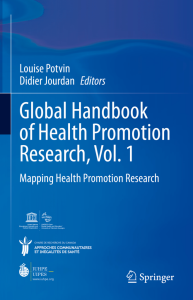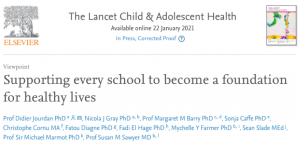As the world enters a second year living with the COVID-19 pandemic, half of the global student population is still affected by full or partial school closures. To mobilize and support learning continuity, UNESCO established the Global Education Coalition which today counts 160 members working around three central themes: Gender, connectivity and teachers.
On 29 March 2021, UNESCO convened a high-level ministerial meeting “One year into COVID: Prioritizing education recovery to avoid a generational catastrophe” to take stock of lessons learnt, the greatest risks facing education today and strategies to leave no learner behind. During this meeting, Professor Didier Jourdan, chair holder of the UNESCO Chair and head of the WHO Collaborating Center Global Health and Education, was invited to present a state-of-the-art review of the evidence about keeping schools open safely.
Professor Jourdan presented three solid facts:
- schools should be among the last places to close and first to reopen
- school reopening, with comprehensive infection prevention and control measures in place, and when the community infection levels were low or moderate, did not increase community transmission
- the mechanisms of implementation in schools involve institutional, contextual and personal factors
Read the transcript of the presentation
More information about the high level ministerial meeting












 About Didier Jourdan
About Didier Jourdan
